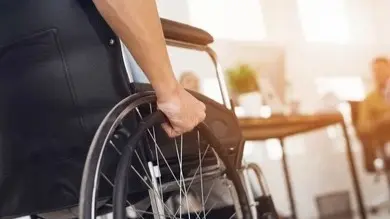Updated 12 June 2024 at 16:08 IST
People with Disabilities Face Higher Risks During Heatwaves: Study
The Researchers examined how exposure to heat impacted emergency admissions during warm seasons in the country - June to September.
- Health News
- 2 min read

A recent study conducted by researchers from Pusan National University, South Korea, has shed light on the disproportionate impact of heatwaves on people with disabilities. The Researchers examined how exposure to heat impacted emergency admissions during warm seasons in the country - June to September. They looked at people with four types of disabilities - physical, brain lesion disorders, vision, and hearing impairments.
The study, published in The Lancet Planetary Health journal, found that this section of society was at twice the risk of hospitalisation compared to the general population, especially due to mental and respiratory diseases.
The researchers found a fourfold increase in emergency admissions and seven times higher medical costs in people with disabilities.
Further, among those with disabilities, people having brain lesion disorders and severe physical disabilities, along with women and those older than 65 years, were found to be more vulnerable to extreme heat.
Advertisement
The authors said the findings reveal disparities in admissions and medical expenses for individuals with disabilities and those without.
The study highlights the need for informed public health policies to support and address the specific needs of this group, they said.
Advertisement
"As far as we know, there are still a limited number of guidelines against climate change in the context of people with disabilities. Our study sheds light on the importance of considering the population with disabilities while developing guidelines against climate change," said lead researcher Whanhee Lee from Pusan National University.
For instance, public health policies could include practical actions addressing various disabilities, along with healthcare training to consider the diverse medical conditions of people with disabilities and the impacts of climate change on their health, the authors said.
Such plans will also align with UN Sustainable Development Goals (SDGs) for equal healthcare access and climate action, they said.
For the study, the researchers looked at the health records of nearly 60,000 beneficiaries with disabilities and over 10 lakh beneficiaries without, from the Korean National Health Insurance Service-National Sample Cohort database.
Published By : Isha Bhandari
Published On: 12 June 2024 at 16:08 IST
